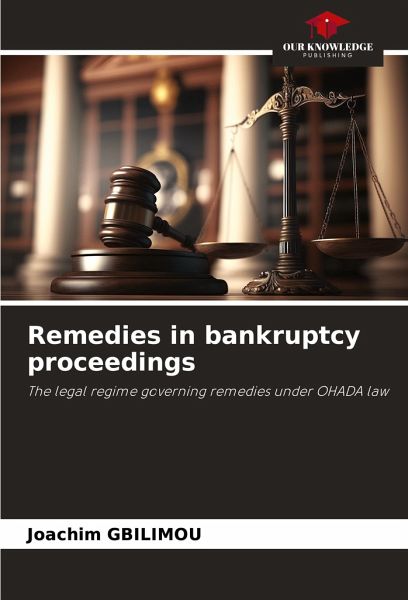
Remedies in bankruptcy proceedings
The legal regime governing remedies under OHADA law
Versandkostenfrei!
Versandfertig in 6-10 Tagen
29,99 €
inkl. MwSt.

PAYBACK Punkte
15 °P sammeln!
Remedies are a special feature of insolvency proceedings. This particularity is characterized by a restrictive regime, dictated by the imperatives of celerity and rapidity which must characterize the procedure. Three elements characterize this regulation: the restrictive nature of the conditions governing the opening of appeal procedures; the brevity of the time limits for exercising them; and the principle of the non-suspensive effect of appeals, which manifests itself through the provisional execution of decisions.This work is divided into two main parts, the first of which is devoted to wha...
Remedies are a special feature of insolvency proceedings. This particularity is characterized by a restrictive regime, dictated by the imperatives of celerity and rapidity which must characterize the procedure. Three elements characterize this regulation: the restrictive nature of the conditions governing the opening of appeal procedures; the brevity of the time limits for exercising them; and the principle of the non-suspensive effect of appeals, which manifests itself through the provisional execution of decisions.This work is divided into two main parts, the first of which is devoted to what he calls the legal and organizational framework for appeals in collective proceedings, in which he outlines the legal remedies available in collective proceedings and the courts with jurisdiction over appeals.He then outlines the particular effects of appeals in insolvency proceedings, notably the annihilation of the suspensive effect of appeals, as well as other original features that characterize these appeals.














